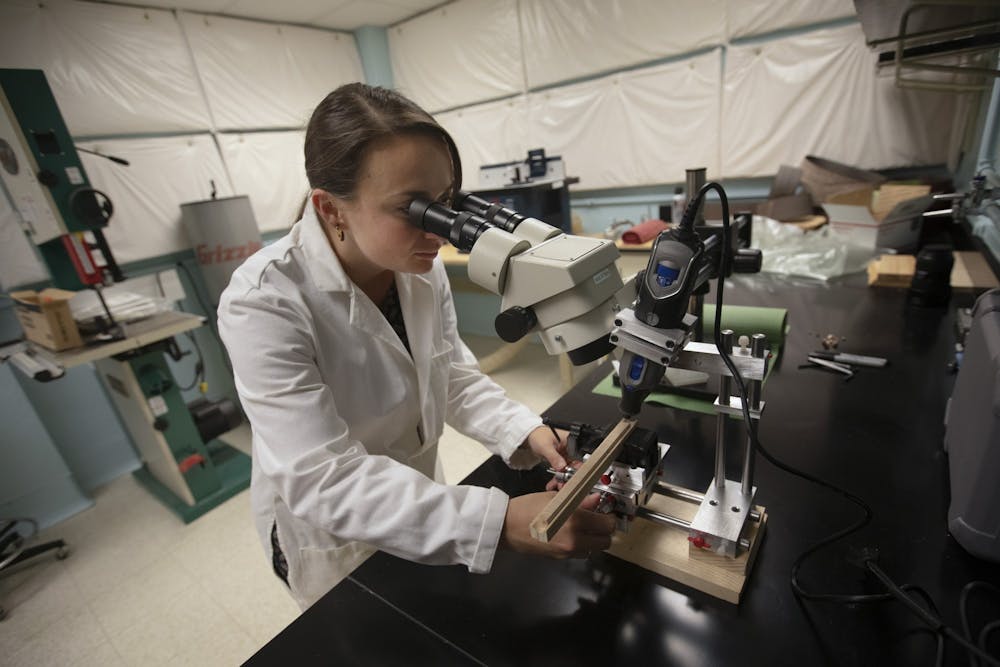UNC's research labs are increasing on-campus operations starting Monday, Terry Magnuson, vice chancellor for research, announced on May 23.
Magnuson said in a message addressed to the UNC Research Community that as of May 23 the University’s research labs and facilities were operating at approximately one-quarter capacity.
“In the initial phase of ramp-up beginning June 1, we will increase operations in UNC’s research labs, clinics and other facilities up to 50 percent of their on-site capacity," Magnuson said.
Prior to June 1, research lab operations had been limited to approved “critical research activities,” in the hopes of minimizing the spread of COVID-19.
"The Office of the Vice Chancellor for Research (OVCR) will phase in the return of research faculty, staff and trainees to campus over time in a coordinated process that ensures appropriate physical distancing and the availability of personal protective equipment (PPE) and other supplies to protect against COVID-19," Magnuson said.
As research operations increase, the OVCR plans to monitor the status of the COVID-19 pandemic and will potentially implement tighter restrictions and reduce staffing if localized outbreaks occur.
Dr. Rick Stouffer, co-director of the UNC McAllister Heart Institute, said the University’s research operations can be separated into three divisions: clinical labs with patient contact, clinical labs without patient contact and basic labs.
Stouffer said clinical lab research involves both direct and non-direct patient contact. Analyzing medical records to determine the cause of heart attacks would be an example of non-patient contact research, whereas testing the effectiveness of a new drug through clinical trial would be an example of patient contact research.
Basic labs do not involve human research and are based on “the fundamental level of discovery” in understanding how cells and animals work, said Stouffer.



